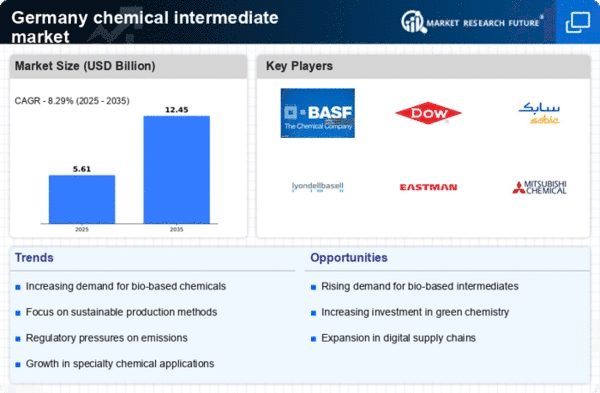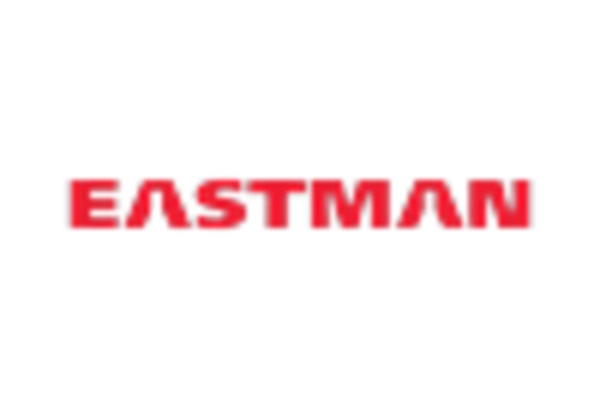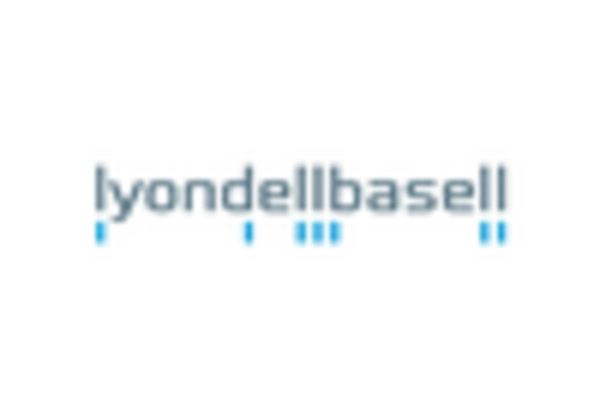The chemical intermediate market in Germany is characterized by a competitive landscape that is both dynamic and multifaceted. Key growth drivers include the increasing demand for specialty chemicals, advancements in sustainable practices, and the ongoing digital transformation within the sector. Major players such as BASF SE (DE), Covestro AG (DE), and Dow Inc. (US) are strategically positioned to leverage these trends. BASF SE (DE) focuses on innovation and sustainability, aiming to reduce its carbon footprint while enhancing product offerings. Covestro AG (DE) emphasizes circular economy principles, integrating sustainability into its core operations. Dow Inc. (US) is actively pursuing digital transformation initiatives to optimize its supply chain and improve operational efficiency, thereby shaping a competitive environment that prioritizes innovation and sustainability.Key business tactics employed by these companies include localizing manufacturing and optimizing supply chains to enhance responsiveness to market demands. The market structure appears moderately fragmented, with a mix of large multinational corporations and smaller specialized firms. The collective influence of key players fosters a competitive atmosphere where innovation and sustainability are paramount, driving companies to differentiate themselves through advanced technologies and sustainable practices.
In October BASF SE (DE) announced a significant investment in a new production facility aimed at enhancing its capacity for bio-based chemical intermediates. This strategic move is likely to bolster BASF's position in the sustainable chemicals market, aligning with global trends towards greener production methods. The facility is expected to reduce greenhouse gas emissions by approximately 30%, reflecting BASF's commitment to sustainability and innovation.
In September Covestro AG (DE) launched a new line of sustainable polycarbonate materials derived from renewable resources. This initiative not only strengthens Covestro's product portfolio but also positions the company as a leader in the sustainable materials sector. The introduction of these materials is anticipated to meet the growing demand from industries seeking eco-friendly alternatives, thereby enhancing Covestro's competitive edge.
In August Dow Inc. (US) unveiled a digital platform designed to streamline its supply chain operations, significantly improving efficiency and reducing lead times. This platform leverages advanced analytics and AI to optimize inventory management and logistics. The strategic importance of this initiative lies in Dow's ability to respond more swiftly to market fluctuations, thereby enhancing customer satisfaction and operational resilience.
As of November current competitive trends in the chemical intermediate market are heavily influenced by digitalization, sustainability, and the integration of AI technologies. Strategic alliances among key players are increasingly shaping the landscape, fostering collaboration on innovative solutions and sustainable practices. Looking ahead, competitive differentiation is likely to evolve from traditional price-based competition to a focus on innovation, technology, and supply chain reliability. Companies that successfully navigate these trends will be better positioned to capture market share and drive long-term growth.
















